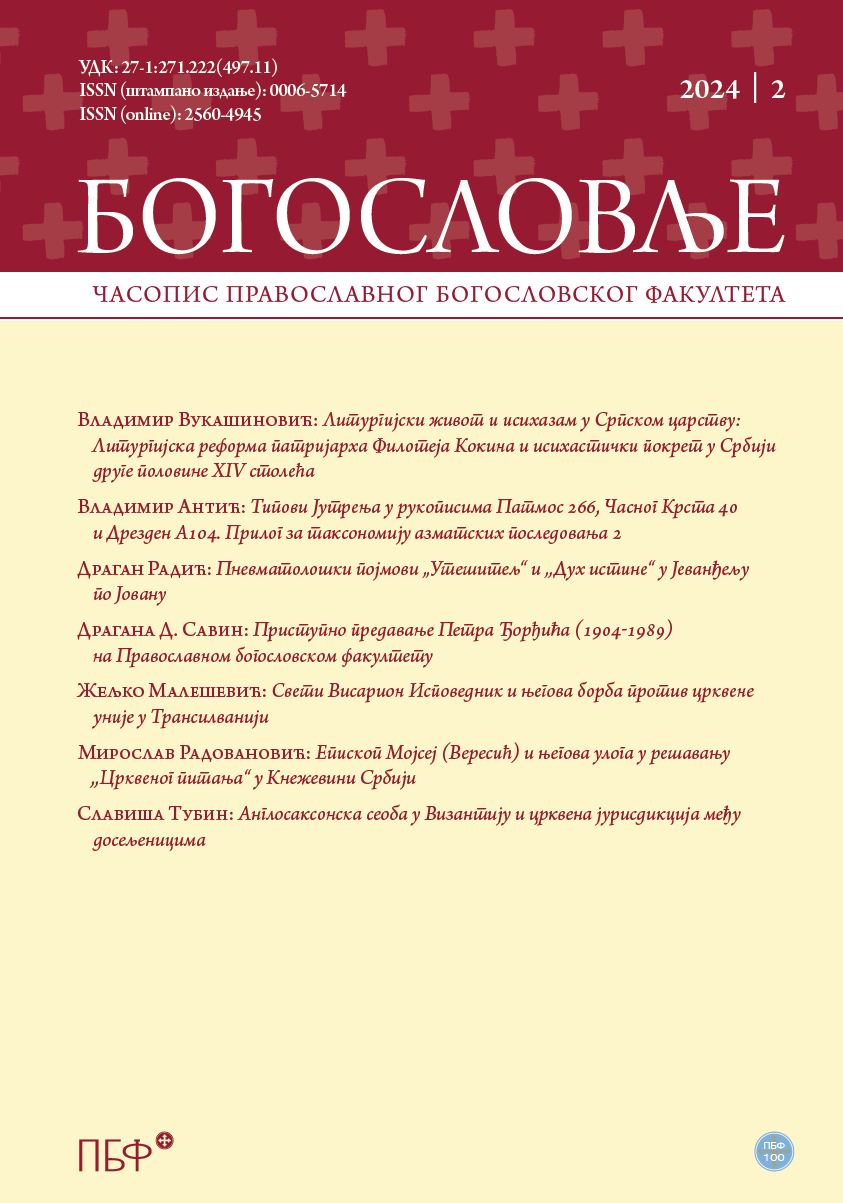Епископ Мојсеј (Вересић) и његова улога у решавању ,,Црквеног питања“ у Кнежевини Србији
Bishop Moјsej (Veresić) and his role in the resolution “Church issue” in the Principality of Serbia
Author(s): Miroslav RadovanovićSubject(s): Christian Theology and Religion, History, Modern Age, Theology and Religion, 19th Century, Eastern Orthodoxy, Sociology of Religion, History of Religion
Published by: Православни богословски факултет Универзитета у Београду
Keywords: Bishop Moisej (Veresić); Metropolitan Mihailo (Jovanović); Kingdom of Serbia; King Milan; Tax Law; State Councilor;
Summary/Abstract: The period of the 19th century represents one of the most turbulent periods in the history of Serbian statehood. The Principality of Serbia, throughout the entire mentioned period, strove to win as favorable a position as possible on the international stage and made the centuries-old dream of state independence ever closer. Guided by the idea of German and Italian unification, the goal was to create a single South Slavic state in the Balkans. After the Berlin Congress, the independent Serbian state focused a lot of attention on its internal organization, which penetrated into every pore of society. The Serbian Orthodox Church could not remain a silent observer of the events in which the state found itself, and actively participated in them, often not sharing the ideals and viewpoints of the representatives of the state authorities. The Serbian Church made great efforts in realizing the idea of South Slavic Piedmont and shaping the Serbian national idea. Within this work, special attention will be paid to Bishop Moisej (Veresić) and his activity and role in the years of not so harmonious relations between the Serbian state and the Church, known in history as the “Church question”. Bishop Moisej was the bishop of Šabac, Negotin, and then the administrator of the metropolis for a short period of time from 1881 to 1883. After completing the administrative function to which he was called, he replaced his episcopal robes with the robes of a state councilor, from which he later retired. The personality of Bishop Moses managed to unite church and state service, which is almost a unique case in our rich history. All of the above therefore deserves special attention in elucidating his intentions and actions.
Journal: БОГОСЛОВЉЕ
- Issue Year: 83/2024
- Issue No: 2
- Page Range: 91-107
- Page Count: 17
- Language: Serbian

